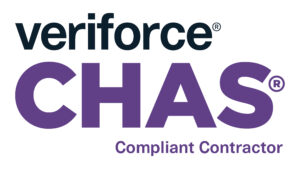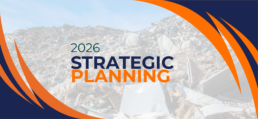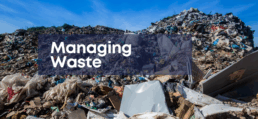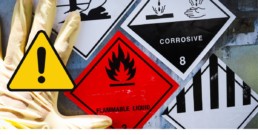Environment agency confirms new charging approach for simpler recycling
The Environment Agency (EA) has confirmed changes to how it will recover the costs of regulatory work linked to the simpler recycling reforms, following a public consultation.
Under the new approach, the EA will apply a £118 hourly “time and materials” charge where regulatory work is required due to non‑compliance. The charge applies only to businesses and occupiers of relevant non‑domestic premises that fail to meet the recycling requirements.
Why the change?
The updated charging model is designed to ensure that the cost of enforcement falls on non‑compliant businesses, rather than those that meet their obligations. This reflects the polluter pays principle and aligns with how the EA recovers costs for other technical regulatory services.
The hourly rate is based on an assessment of the staff time and activities needed to carry out compliance checks and enforcement work.
Consultation outcome
Feedback on the proposals was mostly positive, with respondents commenting on fairness, customer impact, environmental protection, and the design of the charging scheme. After reviewing all responses, the EA decided to implement the charge as proposed, without changes.
When it takes effect
The revised charges will apply from 3 February 2026. The updated charging scheme has now been published on GOV.UK.
What this means for businesses
- Compliant businesses will not be charged
- Non‑compliance may result in hourly regulatory charges
- Early compliance helps avoid additional costs and regulatory intervention
For businesses, the message is clear: meeting simpler recycling requirements reduces both regulatory risk and cost.
The EA have published and updated their documents regarding charges (these charges started from 3/2/2026) Read the full details here:
Celebrating our CHAS certification: a milestone in Health & Safety excellence
Ensuring your waste provider is fully compliant is not just a legal requirement, it’s a cornerstone of responsible business practice. Compliance means your provider follows strict regulations for handling, transporting, and disposing of waste, protecting public health, the environment, and your company’s reputation. Non-compliance can lead to heavy fines, legal penalties, environmental harm, and loss of trust.
We are thrilled to announce that we have been awarded the prestigious CHAS certification after demonstrating full compliance with CHAS standards, in line with the requirements of SSIP Core Criteria and UK Health & Safety Legislation.
The CHAS certification is a powerful signal that we (and by extension, our waste management partners) meet rigorous standards for health, safety, and risk management. Recognised across the UK as a benchmark for compliance, CHAS streamlines pre-qualification and proves our commitment to best practices. CHAS accreditation covers multiple areas, including health & safety, environmental management, and supply chain risk, ensuring that all contractors and suppliers are assessed against industry-leading criteria.
What this means to us
- Pride in our people: This certification reflects our team’s hard work and professionalism.
- Confidence for our clients: Partners and customers can trust that we operate to the highest standards.
- A safer future: We are committed to continuous improvement, making sure Health & Safety remains at the heart of everything we do.
Clare Verity, Director and Founder said:
“We are delighted to have been awarded the CHAS certification after demonstrating compliance with the CHAS standards in line with the requirements of SSIP Core Criteria and UK Health & Safety Legislation. This achievement reflects our commitment to upholding high standardsacross a wide range of risk areas. It gives our customers confidence that both Footprint and our contractors are dedicated to compliance and safety, which is at the heart of everything we do.”
You can check if your waste provider is CHAS-approved using the official CHAS portal, which lists accredited contractors and suppliers. This ensures your supply chain is robust, compliant, and aligned with your own standards.
Planning for a sustainable 2026 – start the New Year with strategic reviews
As we approach the New Year, it’s a natural time to reflect, review, and plan for the months ahead. This season often brings a surge in activity around financial planning, forecasting, and setting forward strategies. One key area that consistently requires attention is contract reviews, an essential step to ensure your operations remain efficient, cost-effective, and aligned with your organisational goals.
In recent years, we have observed that many businesses use this period to reassess their approach to sustainability. Whether it’s improving waste collection processes, enhancing recycling efforts, or implementing initiatives to reduce CO2 emissions, now is the perfect opportunity to explore more sustainable ways of working.
How We Can Help
Our team is here to support you as you plan for 2026 and beyond. We offer:
- Comprehensive contract reviews to identify opportunities for improvement and cost savings
- Expert advice on waste collections and management, recycling, and sustainability best practices
- Guidance on reducing your environmental impact, including tailored strategies to cut CO2 emissions
- Free audits to help you benchmark your current performance and set actionable goals
Let’s Start a Conversation
If you’d like to discuss your plans for 2026 or need support with contract reviews, sustainability initiatives, or waste management solutions, we’re just a phone call away.
Give us a call today for a FREE waste audit and take your first step toward a more efficient and sustainable future.
We look forward to partnering with you in the new year and helping your business achieve its goals!
Unlocking the insights of waste management
Managing waste responsibly is more than just a regulatory requirement, it’s a smart business move.
Every business generates a variety of waste types, from paper and plastics to electronics and food scraps. But do you know where your waste goes after it leaves your premises? Here we provide an overview of the main categories of waste commonly found in businesses, how each is collected, and what happens during the recycling process. Some processes may vary pending on types of waste, the supplier used.
Our goal is to help you identify your waste streams and make informed decisions that benefit both your business and the environment.
Paper and cardboard
- Collection: Separate bins for office paper, packaging, newspapers, and shredded documents. We can also arrange special waste collections for confidential waste.
- Recycling Process: Sorted to remove contaminants, shredded and mixed with water to create pulp, cleaned, refined, and pressed into new paper or cardboard products. Cardboard is often baled for efficient storage and transportation.
Plastics
- Collection: designated bins for different plastic types (e.g., PET, HDPE).
- Recycling Process: Plastics are sorted by type, cleaned, shredded, melted, and remolded into pellets for manufacturing new products. Some plastics require specialised recycling due to chemical composition.
Paper, cardboard, and plastics can also be collected together as part of our dry mixed recycling (DMR), where they are subsequently sorted and separated on-site. Download our DMR poster here.
Glass
- Collection: Separate containers for glass bottles, jars, and other glass items.
- Recycling Process: Glass is cleaned, sorted by color, crushed, and melted to form new glass products. Contaminants like ceramics or metals are removed during sorting.
Metals
- Collection: Bins for aluminum cans, steel, copper, and other scrap metals.
- Recycling Process: Metals are sorted, cleaned, melted, and reformed into new metal products. Aluminum and steel are among the most efficiently recycled materials.
Food and Organic Waste
- Collection: Separate bins for food scraps, coffee grounds, and biodegradable packaging. Download our Food Waste Poster.
- Recycling Process: Sent to composting facilities or anaerobic digestion plants to produce compost or biogas. This reduces landfill use and generates renewable energy.
Electronic Waste
- Collection: Special containers for computers, printers, mobile phones, and other electronics.
- Recycling Process: Electronic waste is dismantled, hazardous components are safely removed, and valuable metals and plastics are recovered for reuse.
Hazardous Waste
- Collection: Secure containers for chemicals, batteries (including e-cigarettes - vapes), fluorescent bulbs, and medical waste.
- Recycling/Disposal: Requires specialised handling and treatment to neutralise toxins, often through incineration, biological treatment to break it down, chemical treatment to make it non-hazardous, or specialised, secure landfill.
Construction and Demolition Waste
- Collection: Skips or bins for concrete, bricks, wood, glass, and metals.
- Recycling Process: Materials are sorted, cleaned, and reused in new construction projects or recycled into raw materials.
Implementation
- Waste Audits: Regularly analyse waste streams to identify reduction opportunities.
- Employee Training: Educate staff on proper sorting and recycling procedures.
- Technology Integration: Use smart bins and tracking software to optimise collection and recycling.
- Circular Economy: Design products for durability, repairability, and recyclability; implement take-back programmes.
- Compliance: Ensure full adherence to all regulations governing waste disposal and recycling. This is especially crucial following the introduction of Simpler Recycling.
Implementing these practices is not just about environmental stewardship it’s a strategic business decision that delivers financial, operational, reputational, and social benefits.
If you’d like more details or want a free audit of your business get in touch.
It’s National Kindess Day – help us support those in need!
As the colder months approach, many people in our community face the harsh reality of winter without the warmth and comfort we often take for granted. This National Kindness Day, we invite you to join our Winter Warmth Campaign in support of Focus4Hope, and we need your help to make a real difference!
We need help to create Christmas Hampers, ensuring vulnerable families have food on their tables this Christmas, and for those with no shelter this winter we want to provide warmth with warm clothes, coats and sleeping bags.
How you can help:
- Warm clothes collection. Arrange your own office collection point and we will pick them up OR if you are visiting our offices drop your items off at our collection point. We looking for essential items such as coats, jumpers, sleeping bags and footwear.
- Bring an item a day. As part of a ‘Food Advent Calendar’ help us collect items from our shopping list.
- Spread the word by sharing our campaign with staff.
Why It Matters:
Every item you donate will go directly to someone in need, helping them stay warm this winter and providing vulnerable families with food. We will aim to pick up items WC 8th December 2025. Together, we can show the power of kindness and community spirit.
Get Involved:
We’d love it if you could support us, please let us know if you’d like to sign up to our campaign by 21st November. Thank you for your support and compassion.
To sign up drop an email to customerservice@footprint-recycling.com and we'll be in touch.
Anaerobic Digestion: Turning Food Waste into Valuable Renewable Resources
There are many ‘food waste’ processing units offered on the market. However, few can claim to process and transform food waste into valuable renewable resources, including renewable energy and a nutrient rich fertiliser.
Anaerobic digestion (AD) is a biological process that breaks down organic materials, such as food waste, in the absence of air. It is an environmentally friendly and sustainable method of recycling food waste.
By utilising anaerobic digestion plants, we can convert organic material into biogas, a versatile fuel that can power vehicles, generate heat and electricity, and be fed into the national grids. We can also use food waste and directly retain all the carbon and nutrient values, returning them to the soil as a fertiliser. This is especially important as, at the current rate, reports indicate that a significant portion of the world's soil is already degraded or at risk of degradation, with some projections suggesting that we will lose 50% of all fertile soils by 2050 due to the continued use of chemical fertilisation (harmful both in production and application), which is stripping our soil of its natural goodness.
Anaerobic digestion plants
Footprint Recycling collaborates with waste collectors who divert food waste to a network of anaerobic digestion (AD) plants across the UK. This network enables us to transport food waste to nearby plants, thereby minimising its carbon footprint.
Anaerobic digestion is a process where bacteria break down organic matter, such as food waste, in the absence of oxygen. As the bacteria consume the food waste, they produce biogas, which rises to the top of the digester. This biogas consists mainly of methane, the primary component of natural gas. The solid content of the food waste falls to the bottom of the digestion chamber and is extracted to create a nutrient-rich organic fertiliser.
How it works
In simple terms, the anaerobic digestion system functions much like a huge stomach. Like all stomachs, it requires regular feeding and a balanced diet to operate efficiently. To ensure the bacteria have the right recipe, the food waste must be prepared and any packaging removed. The process involves several steps:
- Collection of food waste
- Transport to AD plants
- Removal of packaging and preparation of food waste
- Feeding the digester with the prepared food waste
- Production of biogas and organic fertiliser.
The process and outcomes
Digesters come in various shapes and sizes, each with its unique characteristics. Getting the precise mix of nutrients to keep the micro bacteria well-nourished and efficient is an art. This can involve adding ingredients such as manure or other specific trace elements to the feedstock. Achieving the proper nutrient balance is essential for maximising the energy recovered from food waste.
Process:
- Hydrolysis: Food waste is mixed into a slurry and broken down into smaller molecules.
- Pasteurisation: The slurry is heated to 70°C to sterilise it.
- Acidogenesis: Compounds are transformed into volatile fatty acids in an oxygen-free environment.
- Acetogenesis: Fatty acids are broken down into acetates and hydrogen.
- Methanogenesis: Acetates and hydrogen are converted into methane and carbon dioxide.
Outcomes:
- Biogas: Methane is purified and injected into the national gas grid.
- Electricity: Methane is converted into electricity through combined heat and power units.
- Biofertiliser: The remaining digestate is used as a nutrient-rich biofertiliser.
Benefits of anaerobic digestion
Anaerobic digestion offers numerous environmental and economic benefits, making it a key player in sustainable waste management. Some of the key benefits include:
- Reduction of greenhouse gas emissions
- Minimise waste sent to landfills
- Generates renewable energy
- Supports sustainable agriculture
- Generation of nutrient-rich organic fertiliser supporting sustainable argriculture
- Contribution to the circular economy
- Improves waste management, reduces costs, ensures regulatory compliance and enhances sustainability.
And finally…
Anaerobic digestion is a powerful tool for transforming food waste into valuable renewable resources. By using a network of AD plants, we can efficiently convert organic material into biogas and organic fertiliser, reducing our carbon footprint and contributing to a sustainable future. Understanding the process and benefits of anaerobic digestion is crucial for advancing waste management practices and maximising the potential of food waste.
Footprint Recycling collaborates with waste collectors who divert food waste to a network of anaerobic digestion plants across the UK
Simpler Recycling Reform: Food Waste Disposal
As part of the Simpler Recycling Reform, it's now essential for businesses with more than 10 full-time employees (or equivalent) to follow the new regulations, including disposing of food waste separately. This includes tea bags, leftovers, out-of-date food, and more. Effective food waste management can significantly contribute to environmental sustainability and reduce landfill usage.
Why separate your food waste?
Separating your food waste can have numerous benefits:
- Environmental impact: Proper food waste disposal reduces methane emissions from landfills, significantly contributing to climate change.
- Resource recovery: Food waste can be composted, turning it into valuable nutrient rich soil that can be used in agriculture and gardening.
- Reducing landfill waste: By diverting food waste from landfills, you will also save money, as removing food from your general waste will significantly affect the amount you have to pay to dispose of it. It costs more in landfill taxes than it does to take food waste to an AD plant.
What can be disposed of as food waste?
To ensure the effectiveness and efficiency of the new food waste recycling regulations, following the guidelines about what items can be included and which should be avoided is crucial. This helps maintain the quality of the compost produced and prevents contamination.
- Fruit and vegetable scraps: peels, cores, and any other parts of fruits and vegetables.
- Meat and fish scraps: including bones and shells.
- Dairy products: cheese, yoghurt, and other dairy items.
- Bread and pastries: any baked goods.
- Eggshells: crushed or whole.
- Coffee grounds and filters: including tea bags.
- Leftover food: cooked or uncooked food remnants (including out-of-date food).
What shouldn't go in
- Metal: no metal items.
- Glass: glass containers or fragments are not permitted.
- Plastic: non-biodegradable plastic items.
- Hazardous waste: chemicals, batteries, and other hazardous materials.
- Pet waste: cat litter and animal faeces.
- Garden waste
- Non-compostable biodegradables: bioplastics that do not break down in compost.
What happens to food waste?
All of the food waste we collect is processed through anaerobic digestion facilities. This process generates renewable energy and produces organic fertiliser, resulting in greenhouse gas savings that are six times greater than composting.
What could be more rewarding than knowing that your food waste is being transformed into renewable biogas and electricity, making your premises more sustainable? It also produces organic fertiliser that enriches our soils and supports the growth of food.
Further Information
Food and drink waste hierarchy: deal with surplus and waste
Simpler recycling: workplace recycling in England
Or you can get in touch with us if you have any further questions.
How has your business adapted to the new Simpler Recycling Reform?
Almost a month in, how has your business adapted to the new Simpler Recycling Reform?
We’ve pulled together a quick round up of what’s what in the world of simpler recycling. As we all know the law in England around recycling recently changed, requiring businesses to recycle a core set of recyclable materials.
When did it happen?
- 31 March 2025 – for businesses with 10 or more full-time equivalent (FTE) employees.
- 31 March 2026 – Local authorities must collect all dry recyclable materials and food waste from households.
- 31 March 2027 – if you have fewer than 10 FTE employees in total across all of your premises.
- 31 March 2027 – Inclusion of plastic film packaging and plastic waste streams.
What needs to be recycled?
You should be recycling the following materials.
- Food waste
- Paper and card
- Plastic bottles, pots, tubs and trays, and cartons (cleaned for DMR)
- Metal tins and cans, foil and empty aerosols
- Glass bottles and jars
This is a legal requirement and ignoring the changes could result in compliance action being taken against your business.
Who should be following the new guidelines
All workplaces in England, including:
- Businesses
- Care homes
- Educational establishments
- Healthcare establishments
- Places of worship
- Penal institutes
- Charity shops
- Residential hostels
- Premises used for public meetings
Still unsure what you should be doing?
- Speak to Footprint Recycling or your waste collector to check if your current services meet the requirements or if you need to make any changes (waste audit).
- Tell your staff about any new processes and how to recycle correctly. This might include training sessions and internal campaigns, including signage on bins, posters, email footers, etc., as a reminder.
- Decide how frequently recycling and food waste collections should be, based on the amount of waste you produce.
Further information
You should check the government website for guidance.
Defra has funded the Waste and Resources Action Programme (WRAP) to develop the Business of Recycling Website . This provides guidance and resources for specific business sectors and non-domestic premises, such as schools and hospitals, on making the required changes.
Frequently Asked Questions
What is changing?
Recycling law has changed in England. All workplaces (businesses and relevant non-domestic premises) must recycle the same core materials.
Why is the UK Government making these changes?
The UK Government want to move to a future where we keep our resources in use for longer and reduce waste to landfill. Increased recycling and separate collection of food waste will help to reduce carbon emissions associated with waste and will support the nation's path to net zero.
What do I need to do?
You will need to ensure that your waste collection service arranges for recyclable materials to be collected separately from your general waste and present your waste in accordance with Simpler Recycling requirements. The recyclable waste streams are plastic, metal, glass, paper and card, and food waste, and you can find more details on what materials should be recycled in the Environment Act 2021
Do volunteers working at a premises count as Full Time Equivalent employees?
Volunteers are not included in determining an organisation's Full Time Equivalent employee count. This includes organisations that have volunteers across multiple premises.
Does the number of employees relate to per premise or the business?
Employment is measured per business, not per premise. Thus, multi-branch enterprises with over 10 FTE across various units must implement the changes and are not exempt.
My workplace has a combination of full and part-time staff. How do I know whether I fit in the micro-firm definition?
A business is a micro-firm if the number of full-time equivalent employees is less than ten. You can determine whether an organisation qualifies as a micro-firm by adding the number of full-time staff and a fraction based on pro-rata hours part-time staff members have worked in the qualifying 12-week period.
What will happen if I do not recycle correctly?
The Environment Agency will be able to issue a compliance notice against anyone who is a party to arrangements for collection made under section 45AZA or section 45AZB (industrial or commercial waste) of the Environmental Protection Act 1990 that is not compliant with the requirements.
Compliance notices can be issued against anyone not presenting the waste separately per the arrangements agreed with the waste collector. This will often be the waste producers (e.g. a business) but may also be, for example, landlords or facilities management companies presenting waste on behalf of the waste producer.
It is an offence to fail to comply with a compliance notice, and you may be liable to pay a fine on conviction.
I do not produce much food waste – do I still need a separate collection?
All workplaces producing food waste (including teabags etc.) will need to arrange for separate collection in accordance with the new Simpler Recycling requirements. This is regardless of the volume, and applies to all workplaces, not just those that serve/sell food or have catering facilities.
Workplaces have flexibility to decide on the frequency of collections to align with the volume of waste they produce, so it is possible to arrange for infrequent collections if this suits the needs of the workplace best. Workplaces could also consider sharing facilities with neighbouring premises where quantities are small, with the agreement of the neighbouring premises and the waste collector.
Do I need to provide recycling and food waste bins front of store for customers?
Workplaces will be required to present their waste for collection in accordance with the new requirements, however businesses won't be obligated to provide a bin for their customers. If businesses choose to provide bins, they will be required to separate out the waste collected where it is deemed to be relevant waste (waste which is similar in nature and composition to household waste) and present it according to their waste collection arrangement.
I'm a charity run by staff and volunteers. Do the new requirements apply to my organisation?
Yes. Simpler Recycling requirements will apply to all premises that produce household-like commercial waste (similar in nature and composition to household waste). This includes charities, and all relevant non-domestic premises, including those registered as charities.
We use a compost system for food waste. Is this still allowed?
You will be able to continue to compost your food waste. However, if you produce any additional food waste you do not compost yourself, you must arrange for this to be collected separately for recycling.
Businesses should take note of separate guidance on composting food waste at commercial premises, which can be foundon the Government website.
Is there any funding available for businesses to implement these changes?
No, businesses are expected to continue to pay for their waste management services. However, we will be providing advice and guidance for workplaces as they transition to compliance with the new recycling requirements.
The dangers of hazardous waste and how to do it safely
Introduction
Hazardous wastes are those which are dangerous and difficult to handle. If your business produces hazardous waste you have a duty of care to make sure it is disposed of properly.
Proper disposal of hazardous waste is crucial for the safety of people, animals, and the environment. Hazardous waste, if not handled correctly, can lead to severe health risks, contamination of soil and water, and dangerous chemical reactions. This document provides an in-depth understanding of the dangers associated with hazardous waste and offers guidelines on how to dispose of it safely.
The Dangers of Hazardous Waste
Hazardous waste encompasses many materials that pose significant risks due to their chemical composition, flammability, reactivity, or toxicity. Below are some of the primary dangers associated with hazardous waste:
Health Risks
- Exposure to Toxic Substances: Direct contact with hazardous waste can result in skin burns, respiratory problems, and poisoning. Many hazardous materials can be absorbed through the skin or inhaled, leading to serious health issues.
- Long-term Health Effects: Repeated exposure to certain hazardous materials, such as asbestos or heavy metals, can lead to chronic illnesses, including cancer, neurological disorders, and reproductive issues.
Environmental Impact
- Soil and Water Contamination: Hazardous waste can seep into the soil and groundwater, contaminating drinking water sources and agricultural land. This contamination can persist for years, affecting ecosystems and human health.
- Air Pollution: Improper disposal methods, such as incineration without appropriate controls, can release toxic fumes and particles into the air, contributing to air pollution and respiratory ailments.
Fire and Explosion Hazards
- Flammable Materials: Certain hazardous wastes, such as solvents and chemicals, are highly flammable and can easily ignite, causing fires and explosions that put lives and property at risk.
- Reactive Substances: Some hazardous materials can react violently with other substances, leading to dangerous situations that can result in explosions or release toxic gases.
How to Dispose of Hazardous Waste Safely
Safe disposal of hazardous waste requires adherence to specific regulations and best practices. Below are the key steps to ensure the safe handling and disposal of hazardous materials in commercial settings:
Identify Hazardous Waste
Properly identifying hazardous waste is the first step in ensuring its safe disposal. This involves:
- Labeling and Segregation: Label all hazardous materials and segregate them from non-hazardous waste. This helps prevent accidental mixing and ensures that each type of waste is handled appropriately.
- Understand hazardous materials, their properties, risks, and safe handling procedures.
- Further guidance for workplace health and safety can be found at The Health and Safety Executive (HSE).
Use of Appropriate Containers
The containers used for storing and transporting hazardous waste must be suitable for the specific type of waste, following all relevant regulations for proper storage and disposal. Key considerations include:
- Durability: Use durable containers that are resistant to the chemicals they will hold. This prevents leaks and spills.
- Sealing: Ensure containers are properly sealed and labelled to prevent the release of hazardous substances.
Compliance with Regulations
Adherence to regulations is essential for the safe disposal of hazardous waste:
- These regulations apply to those who produce, broker/deal, carry and receive hazardous waste to keep, treat or dispose of. Hazardous waste must be accompanied by correctly completed paperwork called a consignment note, or hazardous waste consignment note (HWCN). The note must be prepared before any hazardous waste is moved and is required for all movements of hazardous waste.
- Record-Keeping: Maintain accurate records of the types and quantities of hazardous waste generated, as well as the disposal methods used. These ensure the traceability of the waste from origin to disposal.
Training and Education
Educating employees about the dangers of hazardous waste and proper disposal methods is crucial for maintaining a safe work environment. Training programs should cover:
- Hazard Identification: Teach employees how to identify hazardous materials and understand their risks.
- Emergency Procedures: Train employees on emergency procedures in case of spills, leaks, or exposure to hazardous substances.
Working with Footprint Recycling
Working with a professional waste management company will ensure that hazardous waste is disposed of safely and in compliance with regulations. We have the expertise to handle hazardous waste safely and will ensure you have the right equipment for safely transporting, treating, and disposing of hazardous materials.
All businesses have a responsibility to dispose of hazardous waste safely. By understanding the dangers of hazardous waste and following best practices for its disposal, businesses can protect their employees, the public, and the environment. Proper identification, appropriate containers, regulatory compliance, professional waste management services, and employee training are all essential components of a comprehensive hazardous waste management strategy.
Call us on 01484 660770 or email our team if you'd like to find out more.











